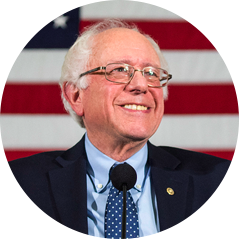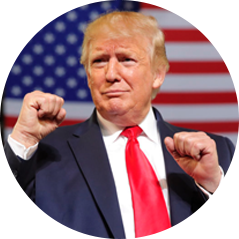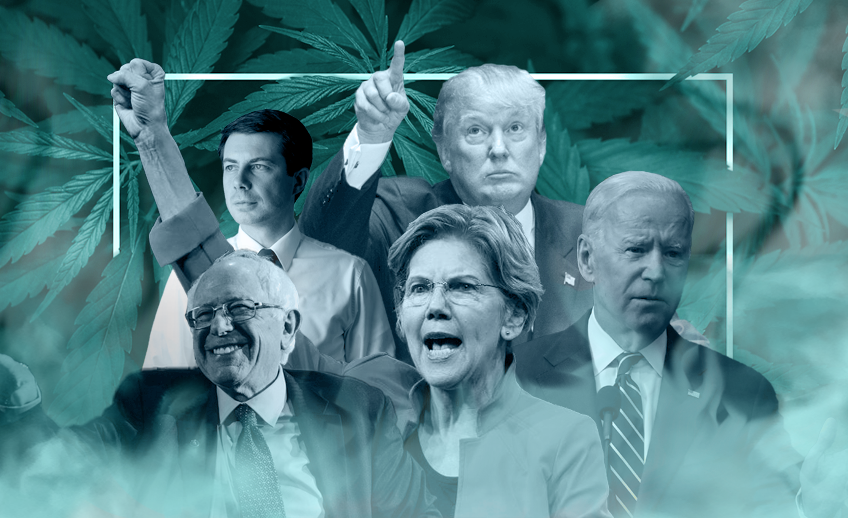You may recall that last year, Simplifya released a blog post about the different presidential candidates and their stances on cannabis. Now that the Iowa and New Hampshire Democratic caucuses are behind us, things are really heating up. It’s time for an update about candidates who are still standing and if their stances on cannabis have evolved, devolved, or stayed the same.
Did the Iowa Caucus Tell Us Anything?
One thing we learned from the Iowa caucuses is that perhaps we are not ready to use technology in our election processes just yet. But did we learn anything new about where the candidates and the voters stand on cannabis legalization? According to a Fox News poll, 76% of Iowan caucus-goers favored marijuana legalization. And with Iowa’s demographics matching the demographics of the United States by 89% and Iowa’s history of predicting 70% of Democratic nominees, it seems fair to say that we can place weight in what happened in Iowa. Furthermore, just two days before the Iowa caucuses, Bernie Sanders pledged to legalize cannabis by executive order on his first day in office if elected president. Making such a bold announcement about a policy that, at least in the past was so highly stigmatized, during such an imperative time in the primaries goes to show that Sanders is confident that cannabis legalization is what voters want. With Bernie winning about 26% of the vote in Iowa and snatching the popular vote, things are certainly looking good for the Vermont Senator and are thus looking good for the cannabis constituency.
Presidential Candidates Ranked on Cannabis-Friendliness
With the Iowa and New Hampshire caucuses over– and our newly-acquitted President just gave his annual State of the Union address— this seems like the perfect time to assess each presidential candidate, including President Trump, and rank him or her on how cannabis-friendly they are to give us an idea about what the future may look like for this country in terms of descheduling, decriminalization, and legalization of cannabis.
Bernie Sanders – 10/10
 It seems safe to say that Bernie Sanders is the presidential candidate for cannabis. As mentioned above, Sanders announced his plan to legalize cannabis on his first day in office if elected president. However, I wouldn’t get too excited about this. Besides the long road ahead of him to becoming president, experts question whether Bernie’s declaration to use an executive order to legalize marijuana in every state in the country is legally or practically achievable.
It seems safe to say that Bernie Sanders is the presidential candidate for cannabis. As mentioned above, Sanders announced his plan to legalize cannabis on his first day in office if elected president. However, I wouldn’t get too excited about this. Besides the long road ahead of him to becoming president, experts question whether Bernie’s declaration to use an executive order to legalize marijuana in every state in the country is legally or practically achievable.
Features of Sanders plan to legalize marijuana (conveniently released at 4:20 p.m.) include:
- Vacating and expunging all past marijuana-related convictions.
- Ensuring that revenue from legal marijuana is reinvested in communities hit hardest by the war on drugs, especially African-Americans and other communities of color.
- Eliminating barriers to public benefits for people who have interacted with the criminal justice system.
- Ensuring legalized marijuana does not turn into Big Tobacco.
Pete Buttigieg 8.5/10
 Although Pete Buttigieg was once seen as a long-shot, he is now a frontrunner coming out of the Iowa caucuses. Because he hasn’t been considered a frontrunner until recently, you may not be familiar with his stance on cannabis legalization. As laid out in his “Douglass Plan” – a plan to dismantle racist structures and systems in the United States – Pete Buttigieg hopes to, on the federal level, eliminate incarceration for drug possession, reduce sentences for other drug offenses and apply these reductions retroactively, legalize marijuana, and expunge past convictions.
Although Pete Buttigieg was once seen as a long-shot, he is now a frontrunner coming out of the Iowa caucuses. Because he hasn’t been considered a frontrunner until recently, you may not be familiar with his stance on cannabis legalization. As laid out in his “Douglass Plan” – a plan to dismantle racist structures and systems in the United States – Pete Buttigieg hopes to, on the federal level, eliminate incarceration for drug possession, reduce sentences for other drug offenses and apply these reductions retroactively, legalize marijuana, and expunge past convictions.
However, some cannabis advocates are not impressed by his time as Mayor of South Bend, Indiana. Most notably, between 2012 and 2018, African Americans in South Bend were 4.3 times as likely to be arrested for marijuana possession as white people, despite using cannabis at around the same rate. Due to this inconsistency, it might be too soon to give Mayor Buttigieg a 10 out of 10, despite his advantageous “Douglass Plan.”
Elizabeth Warren 9/10
 Since our last analysis of Elizabeth Warren’s stance on cannabis legalization, the Senator and 2020 presidential candidate has released a Comprehensive Criminal Justice Reform plan mentioning cannabis legalization. In addition to cannabis legalization, her plan addresses the following:
Since our last analysis of Elizabeth Warren’s stance on cannabis legalization, the Senator and 2020 presidential candidate has released a Comprehensive Criminal Justice Reform plan mentioning cannabis legalization. In addition to cannabis legalization, her plan addresses the following:
- Rethinking the country’s approach to public safety, transitioning away from a punitive system and investing in evidence-based approaches that address the underlying drivers of violence and crime.
- Repealing the 1994 crime bill.
- Ceasing the criminalization of homelessness and poverty.
- Law enforcement, prosecutorial, and judicial reform.
- Reforming incarceration practices.
- Supporting reentry initiatives.
- Ensuring reform at the state and local level.
Furthermore, in December 2019, Warren introduced two new bipartisan cannabis bills in the Senate. One of the bills would prohibit the U.S. Citizenship and Immigration Services from considering cannabis employment in applications for naturalization. The other bill would prohibit the Department of Veterans Affairs from denying veterans VA-backed home loans due to income earned from lawful cannabis business.
The Massachusetts Senator currently has an ‘A’ rating from the National Organization for the Reform of Marijuana Laws (NORML) and clearly views legalization as an issue to run on in the 2020 Democratic presidential primary. However, I hesitate to give her a perfect 10 out of 10, due to some of her past voting patterns regarding cannabis. Back in 2016, Warren declined to fully endorse Question 4, a legalization ballot initiative in Massachusetts that was ultimately approved by voters.
Joe Biden 1.5/10
 Former Vice President Joe Biden, a big loser in Iowa, is by far the worst candidate on cannabis with the most extensive anti-drug background. Back in November, Vice President Biden questioned cannabis legalization, saying that “There’s not nearly been enough evidence that has been acquired as to whether or not it is a gateway drug.” About a week after making this statement, he revised his position, claiming that cannabis should be totally decriminalized and anyone who has been convicted of a cannabis-related offense should have their record wiped clean. However, he still questions full federal cannabis legalization. This is just some of his more recent offenses. Let’s not forget that Biden has been in politics for awhile and he has quite the history when it comes to the war on drugs, criminalization, and staunch opposition to legalization.
Former Vice President Joe Biden, a big loser in Iowa, is by far the worst candidate on cannabis with the most extensive anti-drug background. Back in November, Vice President Biden questioned cannabis legalization, saying that “There’s not nearly been enough evidence that has been acquired as to whether or not it is a gateway drug.” About a week after making this statement, he revised his position, claiming that cannabis should be totally decriminalized and anyone who has been convicted of a cannabis-related offense should have their record wiped clean. However, he still questions full federal cannabis legalization. This is just some of his more recent offenses. Let’s not forget that Biden has been in politics for awhile and he has quite the history when it comes to the war on drugs, criminalization, and staunch opposition to legalization.
In 1989, As a senator from Delaware, he worked alongside the Reagan Administration to develop the Office of National Drug Control Policy (ONDCP). The ONDCP, almost immediately upon its creation, began crusading for a massive expansion of interdiction, enforcement, and incarceration efforts. Furthermore, when the ONDCP was up for reauthorization in 1996, Biden voted for a bill that required that the Director of the ONDCP never use funds appropriated to the Office of National Drug Control Policy to study or pursue a contract relating to the legalization (for a medical use or any other use) of a schedule 1 substance and “and take such actions as necessary to oppose any attempt to legalize the use of such a substance (in any form).”
Vice President Biden also helped author the Violent Crime Control and Law Enforcement Act of 1994 (also known as the 1994 Crime Bill, as mentioned above), a law that makes criminal justice activists cringe. The law imposed tougher prison sentences at the federal level and encouraged states to do the same. It provided funds for states to build more prisons, sought to fund 100,000 more officers, and supported grant programs that encouraged police officers to make more drug-related arrests. All of these policies led to an escalation of the war on drugs that ultimately painted non-violent cannabis users as criminals and stunted any chance at federal legalization of cannabis.
Between his past political actions and his current stance on legalization, it’s safe to say that a Joe Biden presidency would not benefit cannabis stakeholders.
Donald Trump 3/10
 It can be easy to get caught up with the Democratic presidential candidates now that the Iowa and New Hampshire caucuses have concluded. But when ranking presidential candidates on their “cannabis-friendliness,” we must also look at our current President’s stance on cannabis legalization since he is running for re-election. Since we last analyzed President Trump’s stance on cannabis, not much has changed. To this day, we are not entirely sure what the President’s stance is on cannabis legalization. Similar to other policy matters, President Trump is rather wishy-washy about cannabis legalization, saying something positive one day, and something negative the next.
It can be easy to get caught up with the Democratic presidential candidates now that the Iowa and New Hampshire caucuses have concluded. But when ranking presidential candidates on their “cannabis-friendliness,” we must also look at our current President’s stance on cannabis legalization since he is running for re-election. Since we last analyzed President Trump’s stance on cannabis, not much has changed. To this day, we are not entirely sure what the President’s stance is on cannabis legalization. Similar to other policy matters, President Trump is rather wishy-washy about cannabis legalization, saying something positive one day, and something negative the next.
Most recently, President Trump said smoking weed makes people “lose IQ points” and get into accidents. Additionally, when signing a large-scale funding bill in December, President Trump effectively said that he reserves the right to ignore a congressionally approved provision seeking to protect state medical marijuana laws from federal interference. In true Trump fashion, these actions are in contrast to a statement he made in late August 2019, when asked about federal legalization of cannabis. “We’re going to see what’s going on. It’s a very big subject and right now we are allowing states to make that decision,” Trump said. “A lot of states are making that decision, but we’re allowing states to make that decision.”
President Trump’s stance is subject to change depending on who his ultimate opponent is in the presidential race. He may take a staunch stance against cannabis legalization in opposition to his opponent or he may speak out in support in order to appeal to voters who are in favor of cannabis legalization. Or he may continue to stay silent on the matter, in respect of “states’ rights.” We’ll just have to wait and see.
A Race to Establish a Grip on the Maturing Cannabis Constituency
In my last blog post regarding the 2020 presidential candidates, I stated “It is clear that the most prominent of the current Democratic candidates are pretty pro-cannabis as of now. I think it is fair to conclude that cannabis is evolving into a mainstream political issue.” As the general election nears, I continue to stand by this sentiment. Furthermore, I believe that this sentiment has only strengthened since I wrote my last blog post. Public approval of legalization has continued to increase and it seems as though most candidates are not only vocalizing their support of legalization but are racing to establish themselves as the “Pot President.”
